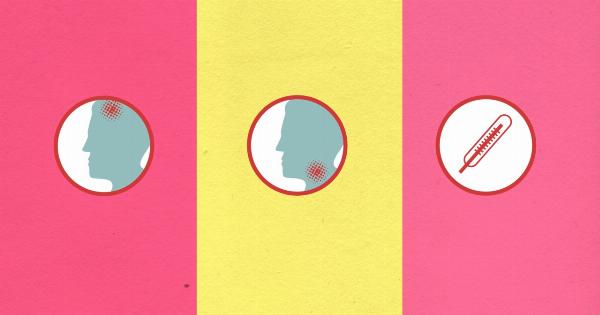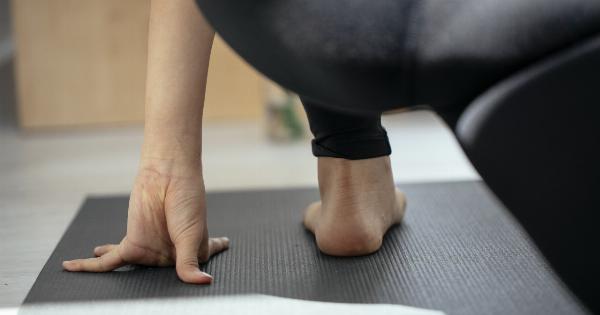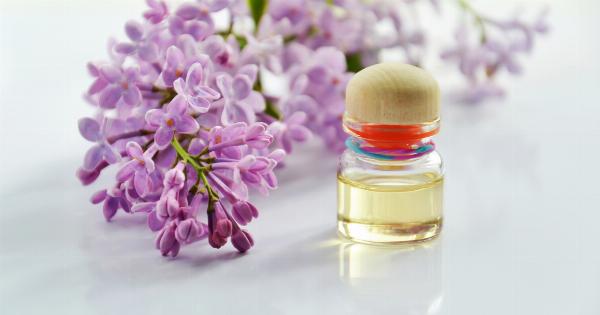Headaches can be uncomfortable and disruptive, affecting your productivity and overall well-being.
While reaching for painkillers might seem like the easiest solution, there are several simple and natural ways to alleviate headaches without relying on medication. In this article, we will explore ten effective methods to help you get rid of headaches and find relief.
1. Stay Hydrated
Dehydration is a common cause of headaches. When your body lacks water, it can lead to decreased blood volume and oxygen flow to the brain, resulting in headache symptoms. To combat this, make sure to drink an adequate amount of water throughout the day.
Aim for at least eight glasses (64 ounces) of water daily. Consider carrying a reusable water bottle with you to stay hydrated wherever you go.
2. Practice Relaxation Techniques
Stress and tension are notorious triggers for headaches. Engaging in relaxation techniques can help reduce muscle tension and relieve headache symptoms.
Deep breathing exercises, meditation, and progressive muscle relaxation are effective techniques to promote relaxation and alleviate headaches. Find a quiet and comfortable space, practice deep breathing, and focus on releasing any tension in your body.
3. Apply a Cold or Warm Compress
Applying a cold or warm compress to your head or neck can provide quick relief from headaches. For tension headaches, a warm compress can help relax muscles and increase blood flow.
On the other hand, a cold compress is beneficial for migraines or headaches caused by inflammation. Experiment with both options to determine which works best for you.
4. Stay Mindful of Your Posture
Poor posture can strain muscles in your neck and head, leading to tension headaches. Stay mindful of your posture throughout the day, especially if you work at a desk or spend extended periods sitting.
Maintain a straight spine, keep your shoulders relaxed, and position your computer screen at eye level to prevent unnecessary strain on your neck and head.
5. Get Enough Sleep
Sleep deprivation can contribute to headaches or even trigger migraines in some individuals. Aim for a consistent sleep schedule and prioritize getting enough quality sleep each night.
Create a relaxing bedtime routine, avoid screens before bed, and ensure your sleep environment is conducive to restful sleep. If you struggle with sleep issues, consider consulting a healthcare professional for guidance.
6. Limit Caffeine Consumption
While caffeine can provide temporary relief for some headaches, excessive consumption can lead to rebound headaches or worsen existing ones.
Pay attention to your caffeine intake and limit consumption if you notice a correlation between caffeine and your headache episodes. It’s best to gradually reduce caffeine intake to avoid withdrawal symptoms.
7. Try Acupressure
Acupressure is an alternative therapy that involves applying pressure to specific points on the body to relieve pain and promote well-being.
To alleviate headaches, try applying pressure to the “Third Eye” point—located between your eyebrows—and the “LI4” point—found in the fleshy area between your thumb and index finger. Apply steady pressure with your thumb for a few minutes while taking slow, deep breaths.
8. Use Essential Oils
Many essential oils have natural soothing and analgesic properties that can aid in headache relief. Peppermint, lavender, and eucalyptus oils are particularly beneficial for headaches.
Dilute a few drops of your preferred oil in a carrier oil, such as coconut or almond oil, and massage it onto your temples, forehead, and neck. Alternatively, you can diffuse the oils or inhale them directly for aromatherapy benefits.
9. Engage in Regular Exercise
Regular exercise has numerous health benefits, including the potential to reduce the frequency and intensity of headaches.
Exercise helps release endorphins, which act as natural painkillers, promotes better sleep, and reduces stress—an often overlooked contributing factor to headaches. Engage in activities you enjoy, such as walking, cycling, swimming, or yoga, for at least 30 minutes most days of the week.
10. Maintain a Balanced Diet
Your diet plays a crucial role in your overall health, including headache management. Certain foods may trigger headaches or migraines in some individuals, such as processed meats, aged cheeses, chocolate, and alcohol.
Keep a food diary to identify any potential triggers and consider eliminating or reducing their consumption. Instead, focus on incorporating fresh fruits, vegetables, whole grains, and lean proteins into your diet for optimal nutrition and headache prevention.






















